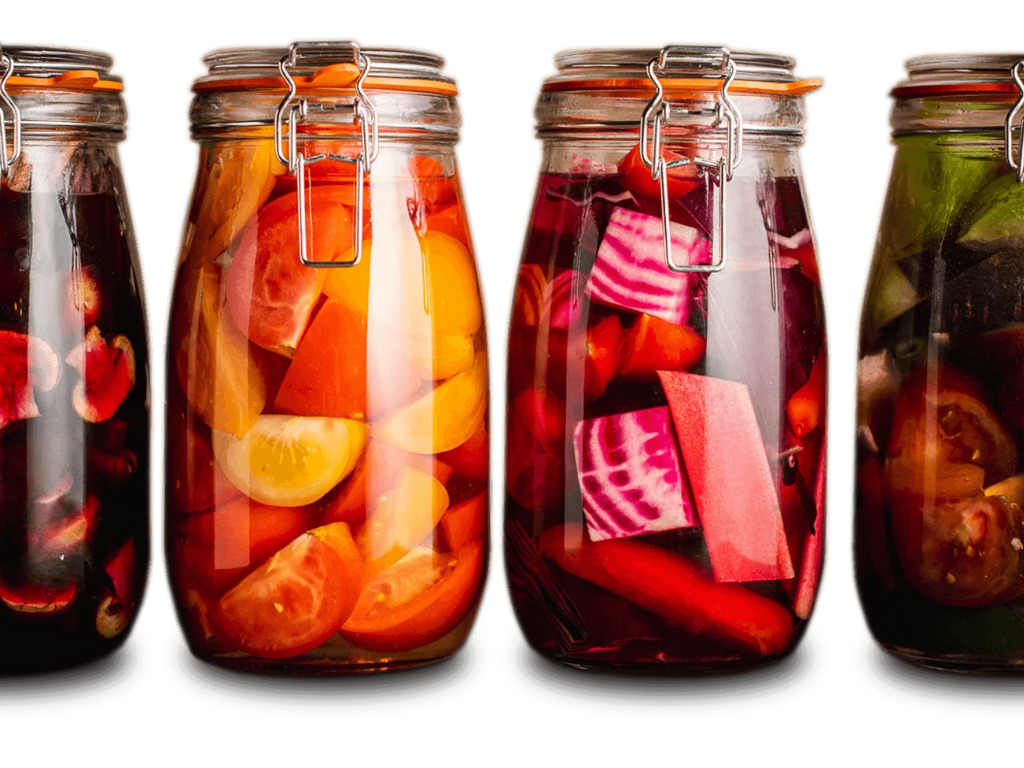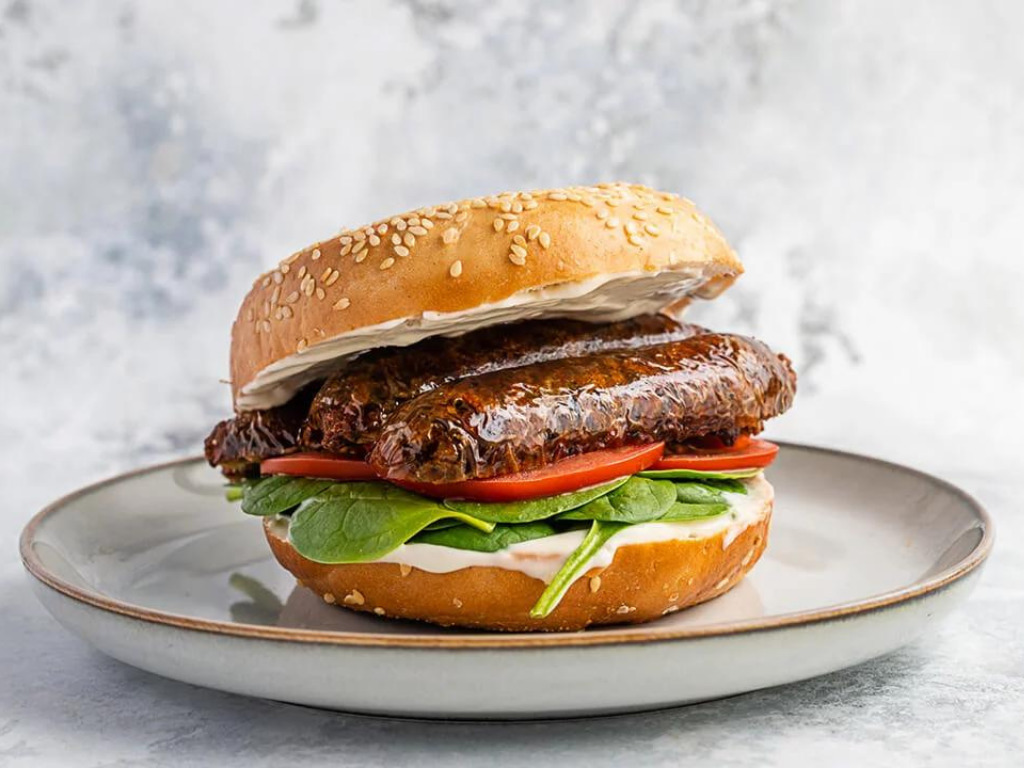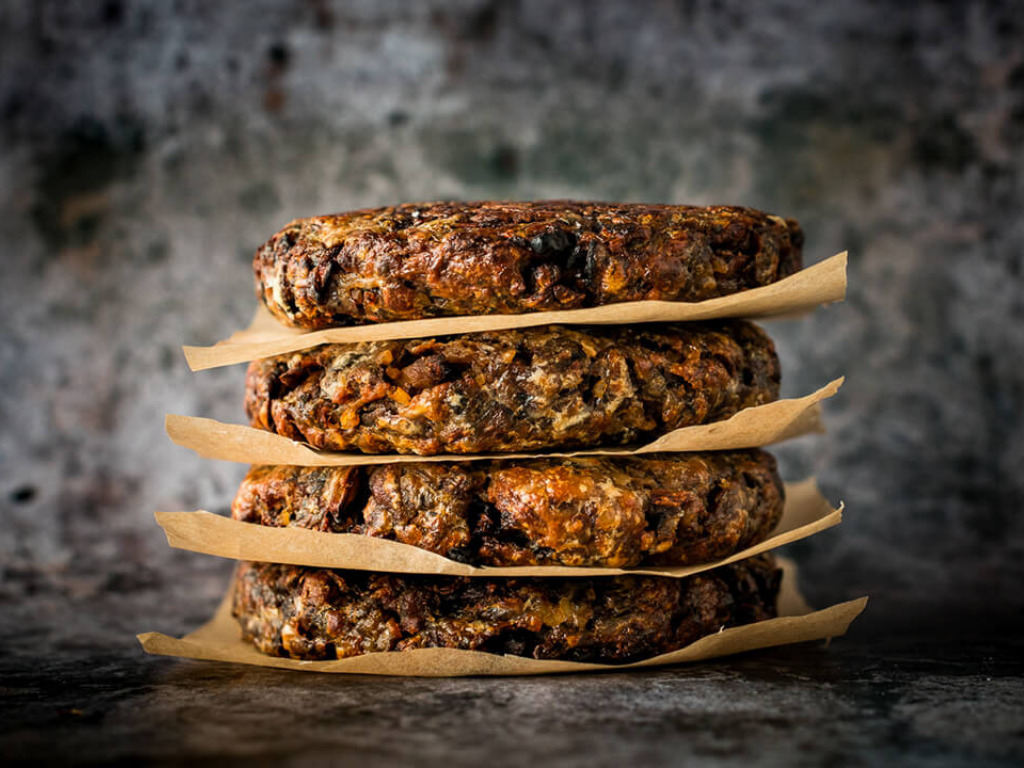4 Mins Read
Neil Rankin, founder of London steakhouse Temper, is entering the plant-based food sphere. The chef claims that he is fed up with alternative protein not quite hitting the right mark and claims he can do better. His gripes include Beyond Meat, which he concedes is a good product but completely unprofitable to produce and sell. He also took aim at Quorn, which he appreciates on a sustainability level, but calls “tasteless”.
Rankin took to the kitchen to develop a new form of plant-based meat. The result is Symplicity Foods, a brand he hopes to use to tempt ardent meat fans away from their favourite meals. So far he has made burgers, schnitzel and sausages. Rankin claims his foods are “like a McDonald’s health food. But better”.

The secret to plant-based meat animal protein fans want
Rankin is leaning on fermentation to create authentically umami meat alternatives. During the Covid-19 national lockdown in the UK, he began experimenting by fermenting vegetables which he then minced and compacted into burger patties. Showing promise, he took a further six months to perfect his recipe before launching a pop-up in London’s Brick Lane, to gauge consumer reactions.
Now, Symplicity Foods is in full production mode, in a Harlesden-based factory. The recipe remains unchanged from Rankin’s kitchen experiments and is not a closely-guarded secret. Mushrooms, onions, beetroot and barley miso are mixed together, cooked and fermented for 10 days. Once ready, the base meat is minced, seasoned and shaped into schnitzels, sausages and burgers. These are supplied to restaurants within London, with the leftover fermentation juice transformed into gravy or a natural flavour enhancer.
Rankin has since partnered with Homeslice Pizza founder Mark Wogan and the two have secured restaurant supply deals. Bleecker Burger, Dishoom and Street Burger all purchase the Symplicity products, with more distribution being sought. Rankin has made no secret of the fact that he wants to supply schools, professional canteens and large chain restaurants with his clean-label alternative to existing plant-based meats.

The paradox of plant-based meat from a beef aficionado
Rankin is seeking to create clean label vegan meat, using waste minimising principles and sourcing ingredients as locally as possible. However, there’s no getting away from the fact that his other interests are focussed on ‘rare breed’ meats.
Of all meat varieties, beef creates the most emissions, including methane. It is estimated that for every 3.5 ounces of beef produced, 110 pounds of greenhouse gases are released into the atmosphere.
Beef is also the leading cause of Amazonian deforestation, resulting in a staggering environmental footprint. Rankin might not enjoy the taste of Quorn, but products such as the microbial protein have been cited as having the potential to halve deforestation. By swapping out 20 percent of the world’s beef consumption for Quorn and similar products, felling could halve within 30 years.

The quest for clean-label alternative protein
Clean label foods are a growing niche of the alternative protein sector. B2B ingredient suppliers and plant-based meat manufacturers are looking to leverage the perceived health and environmental benefits of small ingredient lists and less processed production methods. Fermentation is proving to be a popular way of accomplishing both.
Keen 4 Greens, a Berlin-based startup, recently scooped $2 million to continue shifting over to fermented mycelium products, away from wheat and soy. The final product will be a five-ingredient meat alternative extruded and shaped before being sold. It is pending E.U. approval, however, as all mycelium-based foods are.
Like Rankin, Actual Veggies has concentrated on using vegetables in its burgers, but without fermentation or attempts to perfectly mimic meat flavours. In February this year, the woman-founded company announced a distribution partnership with Plum Market that sees its products sold alongside real beef products.
All photos by Symplicity Foods.





